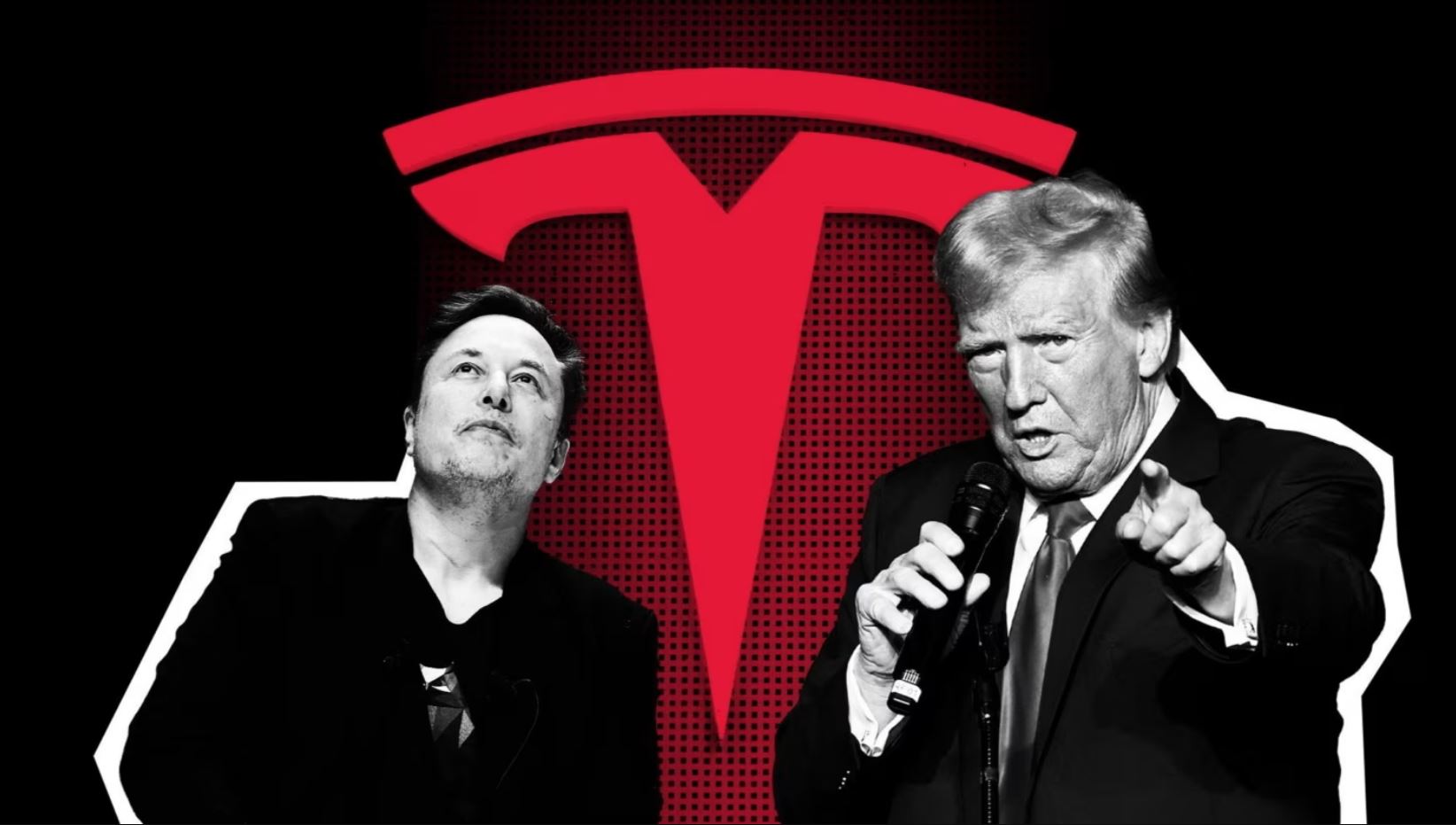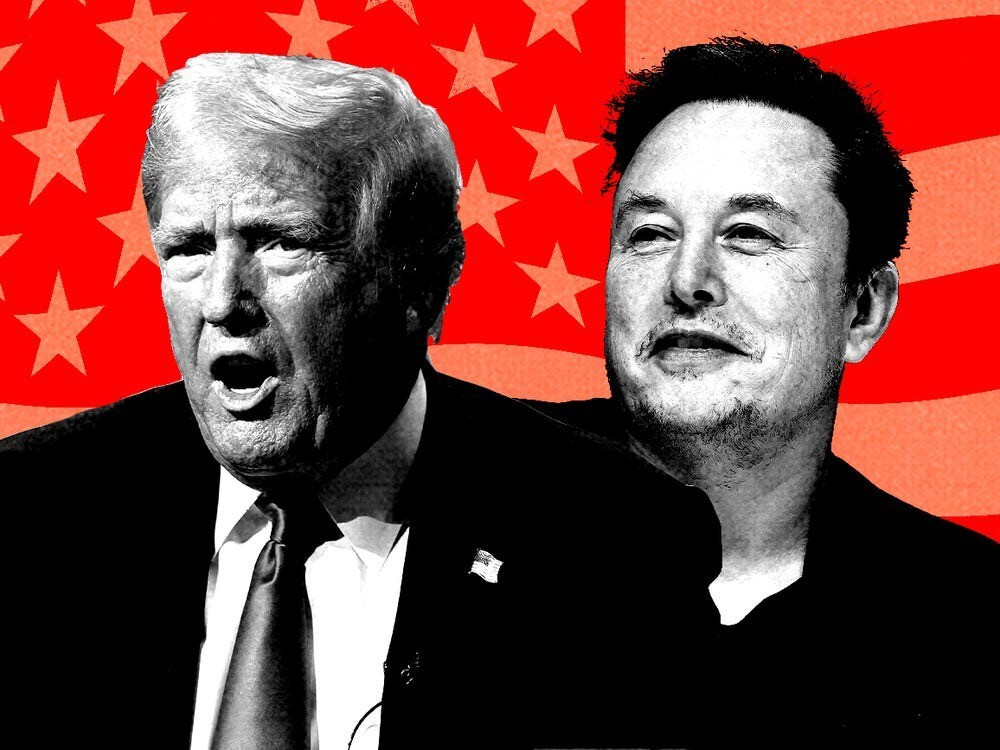
Tesla has long been a symbol of innovation, transforming the electric vehicle (EV) industry and leading the way in clean energy. Elon Musk's ambitious vision has been integral to Tesla’s success, and its commitment to sustainability has been a key element in its growth.
One of the significant revenue streams for Tesla has come from the sale of carbon credits. These credits, granted to automakers that exceed certain emissions standards, can be sold to other manufacturers who do not meet the requirements.
Tesla, with its all-electric lineup, has had an advantage in accumulating these credits and selling them to traditional carmakers such as Ford, General Motors, and Stellantis.
However, this lucrative revenue source is now under threat as the Trump administration moves forward with proposals to eliminate penalties for automakers who fail to meet fuel efficiency standards.

This action could drastically undermine Tesla's business model, wiping out billions of dollars in annual revenue from carbon credits. Tesla’s ability to sell credits to companies like Ford, which does not produce enough electric vehicles to meet emissions standards, has been a critical component of its profit margin.
The revenue from carbon credits is an important part of Tesla's financial success. In 2024 alone, the company earned a staggering $2.76 billion from selling these credits. In the first quarter of 2025, Tesla made $595 million from this revenue stream.
Without this source of income, the company would have barely broken even in its most recent financial results. Despite the fact that revenue from carbon credits has represented less than 3% of Tesla’s total revenue since its inception, the credits have accounted for more than 32% of the company’s profits over the last decade.
The carbon credit system was established under the Corporate Average Fuel Economy (CAFE) standards, which were put in place to encourage automakers to produce more fuel-efficient vehicles and reduce their carbon footprint.

The CAFE standards require automakers to meet certain fuel efficiency and carbon emissions targets. Those that exceed the targets are awarded credits, which they can then sell to other companies that fail to meet the standards.
Tesla, with its fleet of fully electric vehicles, has easily accumulated credits and has been able to sell them for profit to companies like Ford, Stellantis, and others that have been slow to transition to electric vehicles.
However, the Trump administration's latest proposal to eliminate penalties for automakers that fail to meet fuel efficiency and carbon emissions standards is a direct threat to Tesla’s profitability.
This proposal has been included in a larger budget plan supported by Trump and has been pushed by Republican senators who argue that removing the penalties would help reduce the cost of vehicle production.
This would likely remove the financial incentive for automakers to invest in cleaner technologies and reduce their emissions. Without the penalties, the foundation for the carbon credit system would be undermined, leaving Tesla with fewer opportunities to profit from the sale of credits.
The loss of carbon credit revenue would be catastrophic for Tesla, especially in a time when the company is already facing significant challenges in other markets. In May 2024, Tesla reported a 30% drop in sales in China, which is one of its largest and most important markets.
Despite the company’s efforts to expand its presence in the region, Tesla faces increasing competition from local automakers, such as BYD, who are making significant strides in the electric vehicle market. Tesla’s Shanghai factory has also faced production delays, further exacerbating the company’s struggles in the region.
At the same time, Tesla’s relationship with the Trump administration has become increasingly strained. Musk, who has been a vocal supporter of the president in the past, has publicly criticized Trump’s policies, especially regarding the administration’s massive tax and spending bill.

Musk’s outspoken opposition to the bill has led to a public feud between the two, with Trump even threatening Musk over his financial support of Democratic candidates. This rift has raised questions about Musk’s future involvement in U.S. politics and his relationship with the president.
Furthermore, the proposal to eliminate carbon credit penalties is just one example of how the Trump administration’s policies could negatively impact Tesla’s business model. Another significant concern is the potential loss of the federal tax credit for electric vehicles, which has been a key factor in driving consumer demand for Tesla’s cars.
Under Trump’s proposed budget, the tax credit for electric vehicles could be eliminated, which would lead to a reduction in sales for Tesla and other EV manufacturers.
Tesla’s struggles are not limited to the United States. In Europe, the company has also faced challenges due to a significant drop in sales. In April 2024, Tesla’s sales in the region plummeted by 49%, and the company is struggling to meet the requirements for carbon credits under the European Union’s emissions regulations.

Tesla has teamed up with other manufacturers like Ford and Stellantis in an effort to meet the EU’s emissions standards, but the company is falling short of its sales targets for credits, putting its ability to participate in the credit market at risk.
The pressure on Tesla is mounting as it faces headwinds from both regulatory changes and increased competition in key markets. The company has relied heavily on carbon credits for profit, but as the Trump administration continues to push for policies that undermine this system, Tesla may find itself in a precarious financial position.
The company’s dependence on revenue from carbon credits is a vulnerability that could have long-term consequences for its ability to sustain its growth and profitability.
Tesla’s financial future depends on its ability to adapt to these changing market conditions and regulatory environments. The company has demonstrated resilience in the past, but the current political and economic landscape presents a unique set of challenges.

If the Trump administration’s proposal to eliminate carbon credit penalties is passed, Tesla will need to find new sources of revenue to maintain its profitability. The company may need to shift its focus from relying on carbon credits to finding new ways to generate income from its electric vehicle technology.
In conclusion, the Trump administration’s proposal to eliminate penalties for automakers who fail to meet fuel efficiency and carbon emissions standards represents a significant threat to Tesla’s business model.
The company’s reliance on revenue from carbon credits has been a critical factor in its success, and the loss of this revenue stream could have a major impact on Tesla’s long-term profitability.
As Tesla faces increasing competition in key markets and changing regulatory environments, the company will need to find new ways to sustain its growth and maintain its position as a leader in the electric vehicle market. The next few months will be critical for Tesla, and how the company navigates these challenges will determine its future in the electric vehicle industry.




